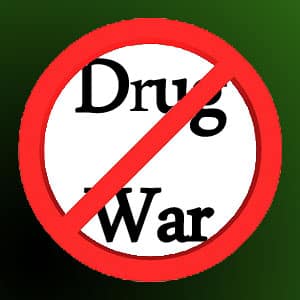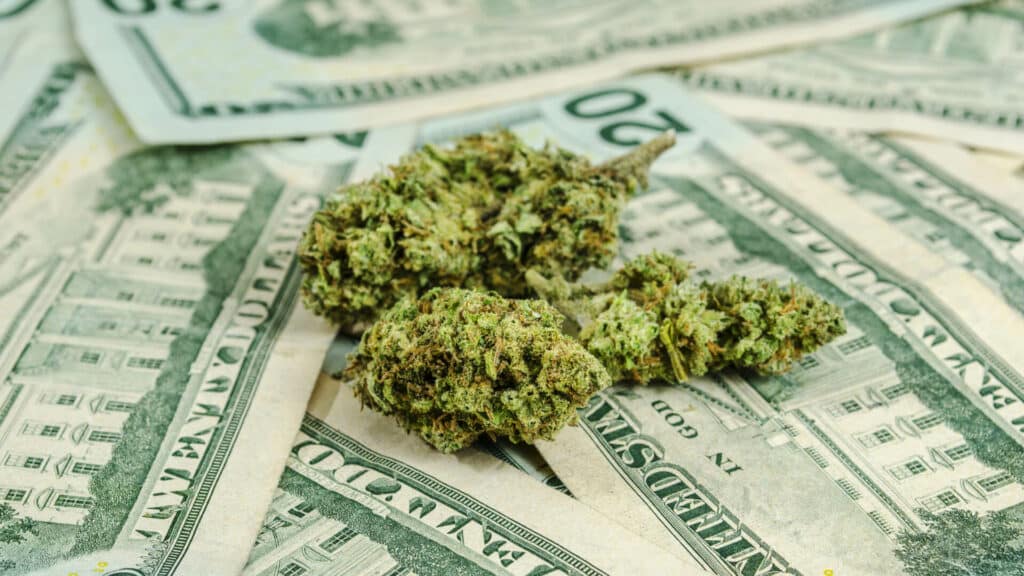A new national survey released by the Pew Research Center provides strong evidence that Americans are undergoing a tectonic shift in their views on drug policy. Not only are Americans convinced that marijuana legalization is coming; a majority supports it, and even larger majorities support a fundamental realignment of our drug policies away from the criminal justice system and toward treatment instead of punishment for hard drug users.
Among the key findings of the report was that more than six in ten Americans (63%) say that state governments moving away from mandatory prison terms for drug law violations is a good thing, while just 32% say these policy changes are a bad thing. This is a substantial shift from 2001 when the public was evenly divided (47% good thing vs. 45% bad thing). The majority of all demographic groups, including Republicans and Americans over 65 years old, support this shift.
Similarly, two-thirds (67%) say the government should focus more on providing treatment for people who use drugs like cocaine and heroin. Just 26% think the focus should be more on prosecuting people who use such drugs. The poll did not ask if hard drug users should just be left alone barring harm to others.
“Given that the vast majority of Americans don’t think people should be prosecuted for drug possession, it’s time to ask the question: Why are we still arresting people for nothing more than drug possession?” asked Ethan Nadelmann, executive director of the Drug Policy Alliance.
More than 1.5 million people are arrested in the U.S. every year for a drug law violation. The vast majority — more than 80% — are arrested for possession only. Roughly 500,000 Americans are behind bars on any given night for a drug law violation, including more than 55,000 people in state prisons for simple drug possession.
“There’s a new consensus that mandatory minimums are no longer appropriate for drug and other nonviolent offenders,” said Nadelmann. “This is reflected and confirmed by the growing bipartisan support for rolling back and ending such laws.”
The passage of the Fair Sentencing Act in 2010, which reduced, but did not eliminate, sentencing disparities between federal crack and powder cocaine offenders is one example of the emerging reformist consensus. Sentencing reform measures passed by around half the states in the past decade, which have resulted in an absolute decline in state prison populations, have also proven popular with a citizenry increasingly tired of drug war without end.
And President Obama and Attorney General Holder have continued to make a series of moves over the past year indicating that they are serious about reducing mass incarceration and fixing the criminal justice system, including a call from Holder to federal prosecutors to not use mandatory minimum charges if they don’t have to.
Likewise, in an otherwise-bitterly-divided Congress, legislators from both sides of the aisle are pushing to reform mandatory minimum drug laws. The reforms are supported by a group of Senators who can only be described as strange bedfellows: Senators Mike Lee (R-Utah), Rand Paul (R-Kentucky), Jeff Flake (R-Arizona), Ted Cruz (R-Texas), Patrick Leahy (D-Vermont), Dick Durbin (D-Illinois), Carl Levin (D-Michigan) and Sheldon Whitehouse (D-Rhode Island).
At the same time, the Pew poll illuminates what has been a major shift in attitudes on whether the use of marijuana should be legal. As recently as four years ago, about half (52%) said they thought the use of marijuana should not be legal; 41% said marijuana use should be legal. Today those numbers are roughly reversed — 54% favor marijuana legalization while 42% are opposed. Just 16% say it should not be legal for either medical or recreational use.
And no matter respondents’ personal feelings for or against marijuana legalization, 75% of them think it is inevitable.
Also, more than two-thirds (69%) said that alcohol was more harmful than marijuana for individuals. And nearly the same number (63%) said alcohol was more harmful to society.
“Leadership is needed to overcome the institutional lethargy and vested interest that have stymied meaningful police and sentencing reform,” said David Borden, executive director of StoptheDrugWar.org (publisher of this newsletter). “The policies are counterproductive, and too many otherwise law-abiding people are getting caught up in the justice system because of them.”
“It is good to know that despite the DEA’s best efforts the American people are getting scientifically accurate information about marijuana, and the fact that it is objectively less harmful than alcohol to both individual health and society at large. The increase in support since last year’s poll shows that more and more Americans understand it’s simply bad public policy to steer adults toward alcohol by punishing those who prefer marijuana as a less harmful alternative,” said Dan Riffle, director of federal policies for the Marijuana Policy Project.
“Now that three-quarters of Americans understand taxing and regulating marijuana is inevitable, the writing is on the wall. Congress needs to read it and move forward with legislation allowing states to choose more effective policies without federal interference,” Riffle added.
While Nadelmann also greeted the poll results, he warned that it should not be used as fuel for even more, if softer, expansion of the criminal justice system.
“It’s good to see yet another poll confirm the results of other state and national polls showing majority support for legalizing marijuana,” he said. “And it’s nice to see that Americans overwhelmingly support treatment-instead-of-incarceration. But it’s important to recognize that there has been overwhelming support for treatment-instead-of-incarceration for well over a decade now — and that we’ve reached the point where the public needs to be better educated about the benefits of providing treatment outside the criminal justice system rather than within and through it. It would be a shame if this latest poll result were used to promote drug courts and other coercive, abstinence-only programs rather than meaningful treatment in the community.”
Article From StoptheDrugWar.org – Creative Commons Licensing – Donate





